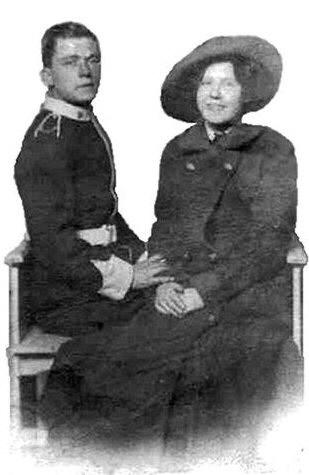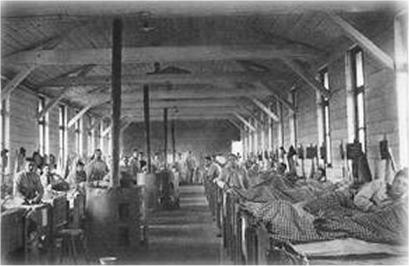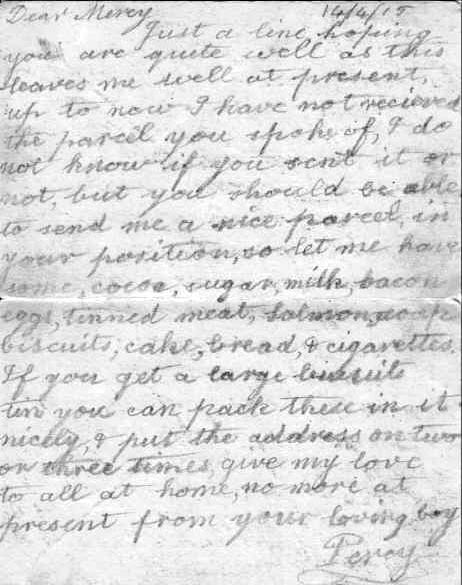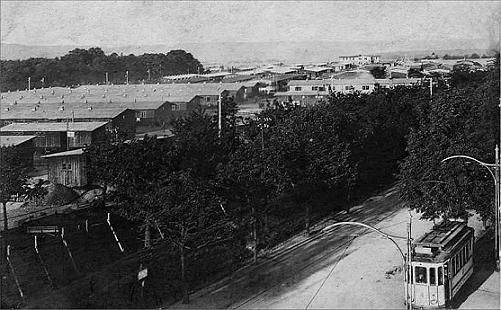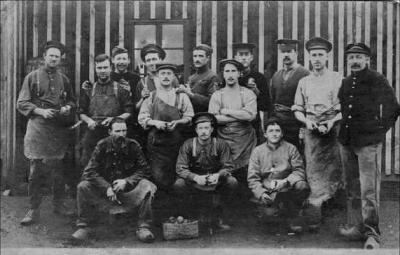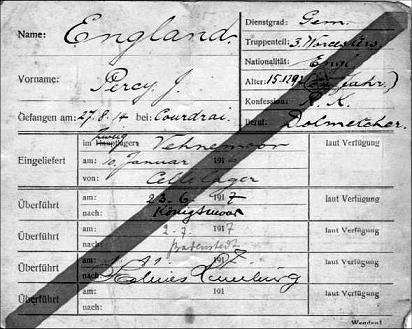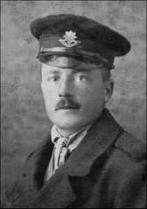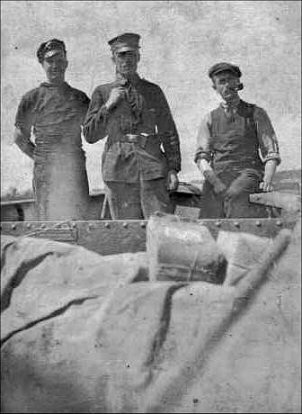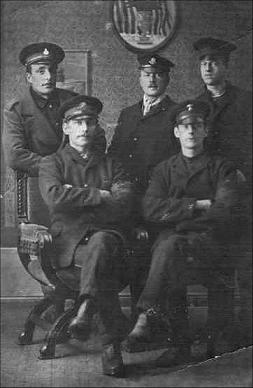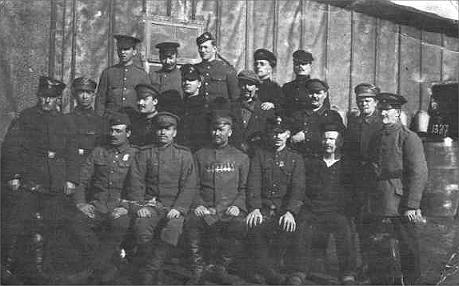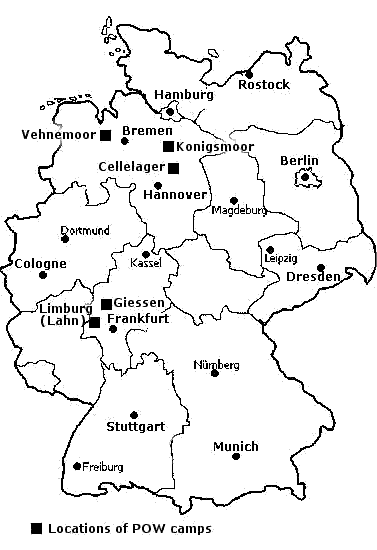Private Percy John England (13235) - POW in 1914
Percy John England was born in 1893. He joined the Worcestershire Regiment on the 7th November 1912 and joined the 3rd Battalion at Tidsworth. As a regular soldier Percy was one of the first to see action in the First World War. On the 14th August 1914 he sailed from Southampton in the troop ship "SS Bosnian" with the men of the 3rd Battalion Worcestershire Regiment, heading for France and the port of Havre. They arrived the following morning. By the 24th August 1914 the 3rd Battalion were in the front line just a few miles south of Mons. On the morning of the 26th August the 3rd Battalion were at the northern end of Caudry. During the early hours of the morning the men came under German machine-gun fire. After a lull in the fighting the enemy brought up additional artillery, and shells burst in rapid succession all over the northern end of the town causing many casualties. Percy John England was wounded and with other casualties who were sent to a small temporary hospital at Caudry (Courdrai). However, by the 27th August the Germans, who were by then in occupation of the place, and sent all the wounded to Cambrai as POW's, including Percy. He was then sent to a Prisoner of War camp at Limburg (Lahn), Germany No. 863. This was one of the Registration Camps which also had a camp hospital. As Private England was wounded when he was captured, it is very likely that he would have had treatment at this camp hospital. It was while he was at this camp that he wrote to his fiancé Miss Mercy Kemp who at that time was living in London. He asked his fiancé to send him a food parcel and cigarettes. Below is a copy of the letter he wrote, dated the 14th April 1915. He was to stay in this camp from the time he was captured until the summer of 1915, when he was then transferred to Giessen Camp in the Province of Hesse. |
Percy John England and Mercy Kemp (c. 1912) |
Limburg (Lahn) Camp Hospital |
Letter from Limburg (Lahn) Camp |
Giessen was a well ordered camp with good sanitary conditions and clean water. It also had a church hut. From this camp men were sent out to work as labourers on local farms. A typical routine of the POW camp was as follows: Reveille sounded at six. The prisoners got up and dressed and were given a bowl of coffee. Those who were wise would save their issue of bread from the night before, and so able to have it with their coffee. After morning coffee there was a roll-call, when prisoners were given a chance to volunteer for work. At noon there was soup, and another roll-call. Interestingly the POW's answered the roll-call, either with the French word "Présent" or the German word "Hier," pronounced the same as "Here". At five o'clock usually there was an issue of black bread made mostly from potato flour. |
Giessen POW Camp (1915) |
During 1916 Private England was transferred from Giessen to Cellelager and then on to Vehnemoor Camp. Vehnemoor Camp was west of the town of Oldenburg. The POW's would have first been transported by train to Oldenburg Station and then marched the 8 miles to Vehnemoor Camp. This camp was one of the Cellelager group and was also known as Cellelager 6. The road from Oldenburg to Vehnemoor was along a canal which had peat sheds along its bank. Private England would remained at this camp until June 1917. On the 23rd June 1917 he was transferred to Konigsmoor Camp west of Bremen near the town of Saltau. But he only stayed there a few weeks. |
Giessen POW Camp - POW's dressed for work |
Private Percy John England's POW Record Card |
Private P. J. England - standing fourth from the right. German guard on the left. |
Pte. P. J. England |
Giessen POW Camp - Barrack C (November 1915) |
Working on the Camp |
Pte. P. J. England - standing centre back row |
Vehnemoor POW Camp (Cellelager 6) (July 1916) |
Percy and Mercy England (c. 1960) |
|
After the war Percy John England retuned to England and was then posted to Dublin, Ireland with the 2nd Battalion Worcestershire Regiment. On the 9th November 1919 he was transferred on to the 'B' Section List at Warwick as he had completed 7 years service with the regular army. As a reserve he was then paid 3 shillings and 6 pence per week. He married Mercy Kemp during 1919 and on the 30th March 1920 he was finally discharged from the army, having served 7 years and 143 days.
Note: The above photos and letter have been kindly provided by Private Percy John England's grandson Martin England.
|

